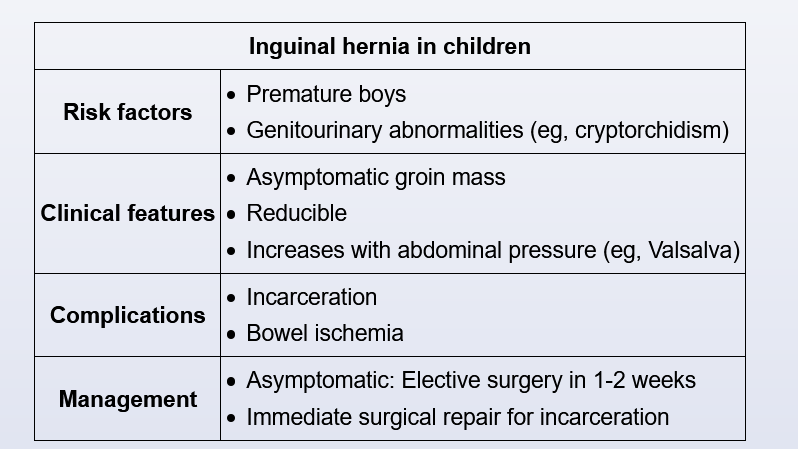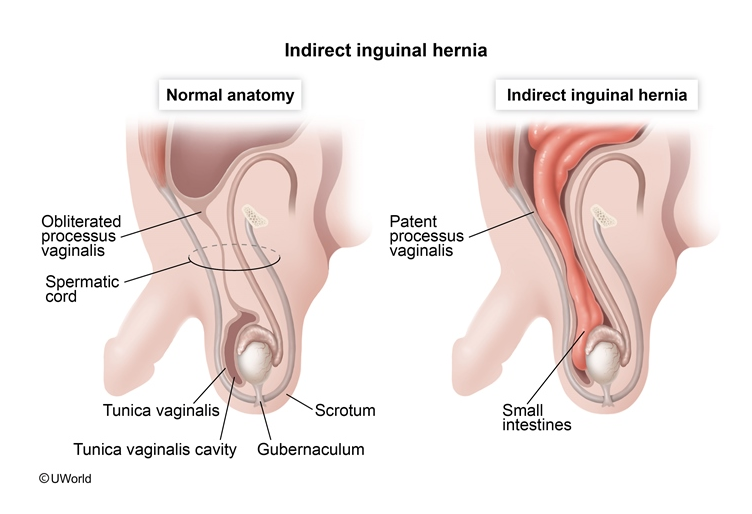hernia


This infant has an indirect inguinal hernia, caused by bowel protrusion through a patent processus vaginalis. At rest, most patients are asymptomatic with no palpable mass. As intraabdominal pressure increases (eg, crying, straining), the intestines protrude through the defect and cause a painless groin mass. The hernia is typically reducible, allowing the bowel to return to its original location.
However, hernias can become irreducible (ie, incarcerated) at any time, possibly while the patient awaits repair. Delaying treatment >2 weeks after diagnosis doubles the risk of incarceration. If incarceration occurs, it can lead to irreversible bowel ischemia due to compromised blood supply to the entrapped intestines. Therefore, management of a reducible inguinal hernia is prompt surgical correction within 1-2 weeks of presentation.
Reassurance and observation are appropriate for hydroceles, as they typically self-resolve by age 1. A hydrocele presents as an asymptomatic cystic fluid collection in the scrotum, not as a reducible mass. Inguinal hernias do not spontaneously resolve.